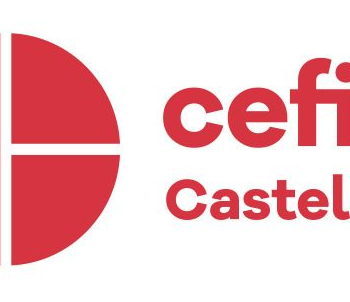
New @geotecUJI paper out in Internet Interventions
We are pleased to announce that GEOTEC members have published a new scientific article in the journal Internet Interventions. The paper is titled “A smartphone-based serious game for depressive symptoms: Protocol for a pilot randomized controlled trial” and is part of an ongoing line of research focused on serious games, smartphone app and psychology interventions in the realm of the research initiative SyMptOMS.
Led by Águeda in pursuit of her PhD, the paper presents a pilot study to investigate the efficacy of a smartphone-based serious game intervention for patients with mild to moderate depressive symptoms. Technology speaking, the team developed a smartphone-based serious game intervention called “Horizon: Resilience”, targeting adults who suffer from mild to moderate depressive symptoms. The goal of the game is to help them to improve their symptomatology in an accessible and autonomous way, by gradually introducing psychological components through four different levels in the game.
Like any game, game mechanism guides players and engages them throughout the game. In this case, “Horizon: Resilience” is a city builder and narrative decision-making game, in which the player acts as the overall manager of a medieval town. . The player disposes of three main mechanisms to make the town thrive through growth and psychological resilience of its inhabitants: appropriate management of resources (materials and energy), construction of new buildings, and handling emerging conflicts among inhabitants through interactions with them.
If you want to know more about “Horizon: Resilience”, here below the summary of the article and the full citation.
Background. Depression is the most prevalent mental disorder, with detrimental effects on the patient’s well-being, high disability, and a huge associated societal and economic cost. There are evidence-based treatments, but it is difficult to reach all people in need. Internet-based interventions, and more recently smartphone-based interventions, were explored to overcome barriers to access. Evidence shows them to be effective alternatives to traditional treatments. This paper presents the protocol of a pilot study whose primary aim is to investigate the efficacy of a smartphone-based serious game intervention for patients with mild to moderate depressive symptoms. Methods. This randomized controlled pilot trial protocol foresees two arms design: 1/ smartphone- based serious game intervention (based on Cognitive Behavior Therapy with particular emphasis on Behavioral Activation and Physical Activity), 2/ waiting list control group. The study is expected to recruit 40 participants (18+), which will be randomly assigned to one of the experimental conditions. The duration of the intervention is two months. The primary outcome measure will be depressive symptomatology. Secondary outcomes will include other variables such as physical activity, resilience, anxiety, depression impairment, and positive and negative affect. Treatment expectation, satisfaction, usability, and game playability will also be measured. The data will be analyzed based on the intention-to-treat and per protocol analyses. Discussion. The study aims to establish initial evidence for the efficacy of a smartphone-based serious game intervention, to serve as input for a larger-scale randomized control trial. The intervention exploits advanced smartphone capabilities, such as the use of a serious game as delivery mode, with the potential benefit of engagement and treatment adherence, and motion sensors to monitor and stimulate physical activity. As a secondary objective, the study aims to gather initial evidence on the user’s expectations, satisfaction, usability and playability of the serious game as a treatment.
Cite it as:
Águeda Gómez-Cambronero, Sven Casteleyn, Juana Bretón-López, Azucena García-Palacios, Adriana Mira (2023) A smartphone-based serious game for depressive symptoms: Protocol for a pilot randomized controlled trial. Internet Interventions, 32, 100624, doi: 10.1016/j.invent.2023.100624.
- Posted by geoadmin
- On 7 May, 2023
- 0 Comments




0 Comments